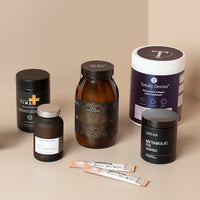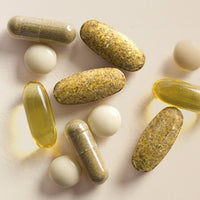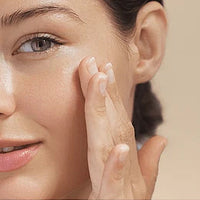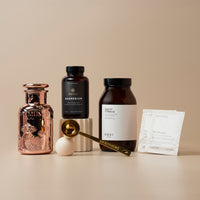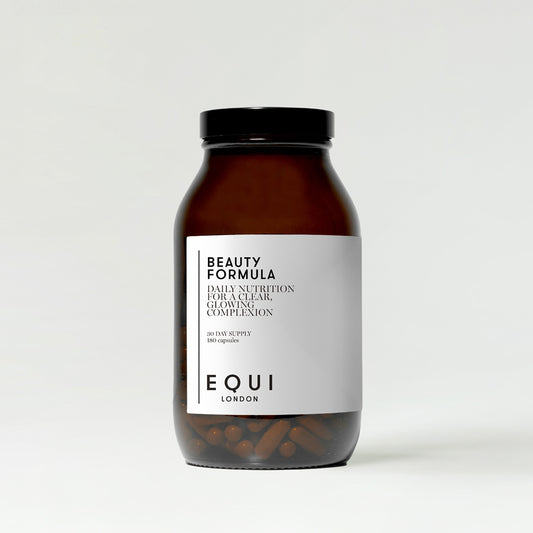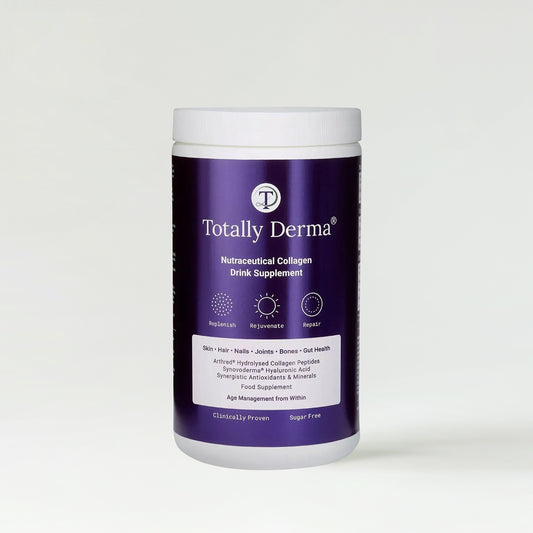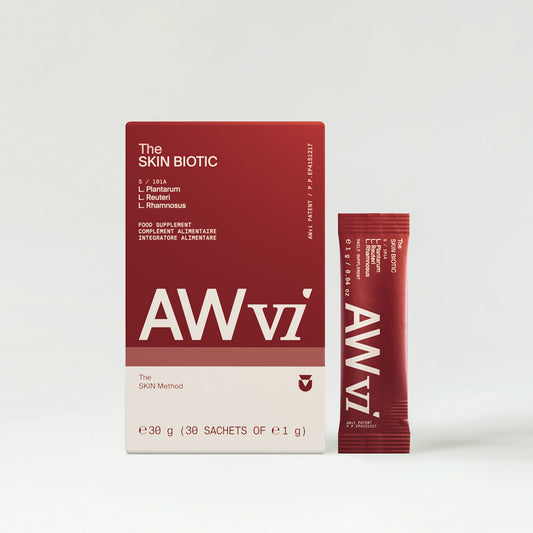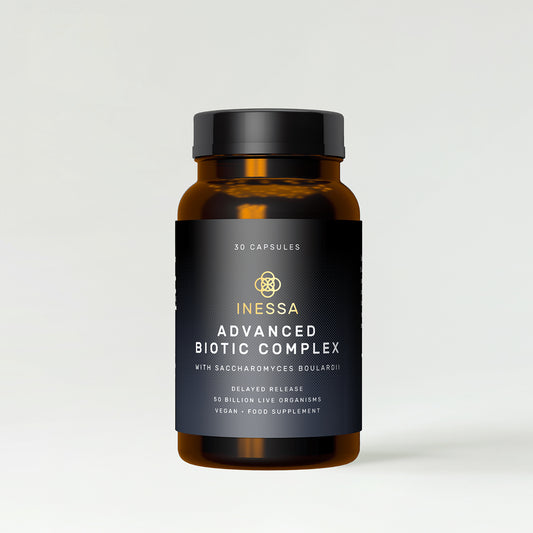Nurturing Your Skin Microbiome: The Role of Supplements in Achieving Radiant Skin
In the pursuit of radiant and healthy skin, we often focus on external factors like skincare routines, moisturisers, and cleansers. However, emerging research suggests that an often overlooked aspect plays a crucial role in skin health: the skin microbiome. Just as our gut harbours a complex ecosystem of bacteria crucial for digestion and overall health, our skin hosts a diverse array of microorganisms that contribute to its well-being. In this blog, we delve into the intricacies of the skin microbiome and explore the potential role of supplements in nurturing it.
Understanding the Skin Microbiome
The skin microbiome refers to the diverse community of microorganisms that reside on the skin's surface and in its deeper layers. These microorganisms include bacteria, fungi, viruses, and mites, collectively forming a complex ecosystem known as the skin microbiota. Although the idea of bacteria living on our skin may be concerning, a lot of these microorganisms are actually helpful and are important for keeping our skin healthy.
The skin microbiome serves several crucial functions:
- Barrier Protection: Beneficial bacteria on the skin help to defend against harmful pathogens, secreting antimicrobial substances and outcompeting them for resources to create balance.
- Immune Regulation: The microbiome interacts with the immune system, helping to modulate its responses and prevent inflammatory conditions.
- Skin Hydration: Certain bacteria produce substances that help to retain moisture in the skin, contributing to hydration and suppleness.
- Wound Healing: Some microorganisms support the wound healing process by promoting tissue repair and reducing inflammation.
Factors Affecting the Skin Microbiome
Several factors can influence the composition and diversity of the skin microbiome:
- Hygiene Practices: Excessive cleansing and the use of harsh antibacterial soaps can disrupt the skin's natural balance of microbes.
- Diet: Nutrient-rich diets can support a healthy microbiome, while diets high in sugar and processed foods may negatively impact microbial diversity.
- Environmental Exposures: UV radiation, pollution, and other environmental factors can alter the skin microbiome.
- When trying to achieve healthy and glowing skin, we usually concentrate on things like skincare routines, moisturisers, and cleansers.
The Role of Supplements
Maintaining a balanced diet that includes a variety of fruits, vegetables, whole grains, and lean proteins is crucial for supporting overall skin health. Additionally, adopting healthy lifestyle habits such as staying hydrated, getting enough sleep, and managing stress can also have a positive impact on the skin.
- Probiotics: Probiotic supplements contain beneficial bacteria that can help replenish and diversify the skin microbiome. Studies have shown that oral probiotics can improve certain skin conditions, including acne and rosacea.
- Prebiotics: Prebiotics are non-digestible fibres that acts as food for beneficial bacteria to promote their growth for a healthy skin microbiome.
- Antioxidants: Antioxidant supplements such as vitamin C, vitamin E, and resveratrol may help protect the skin from oxidative stress caused by environmental factors. By reducing inflammation and supporting skin barrier function, antioxidants can indirectly benefit the microbiome.
- Omega-3 Fatty Acids: Omega-3 fatty acids, found in fish oil supplements, have anti-inflammatory properties that may benefit the skin. By modulating immune responses and reducing inflammation, omega-3s can help maintain a balanced microbiome.
The skin microbiome plays a critical role in maintaining skin health and vitality, and nurturing this complex ecosystem is essential for achieving radiant skin. While skincare products certainly play a role in supporting the microbiome, supplements can offer additional support by addressing internal factors that influence microbial balance. By incorporating probiotics, prebiotics, antioxidants, and omega-3 fatty acids into your daily regime, you can help promote a diverse and resilient skin microbiome, resulting in healthier, more radiant skin.
It's important to highlight that the use of supplements to support the skin microbiome is a growing area of interest in the field of dermatology. Research continues to explore the specific strains of probiotics that are most beneficial for skin health, the optimal dosages of prebiotics to promote a healthy microbiome, and the synergistic effects of combining different supplements for enhanced skin benefits.
Additionally, ongoing studies are investigating the potential of personalised skincare regimes tailored to an individual's unique skin microbiome profile, paving the way for more targeted and effective approaches to achieving radiant and healthy skin.
Remember, consulting a healthcare professional or dermatologist is key to developing a comprehensive skincare plan that addresses your specific skin concerns and goals.


